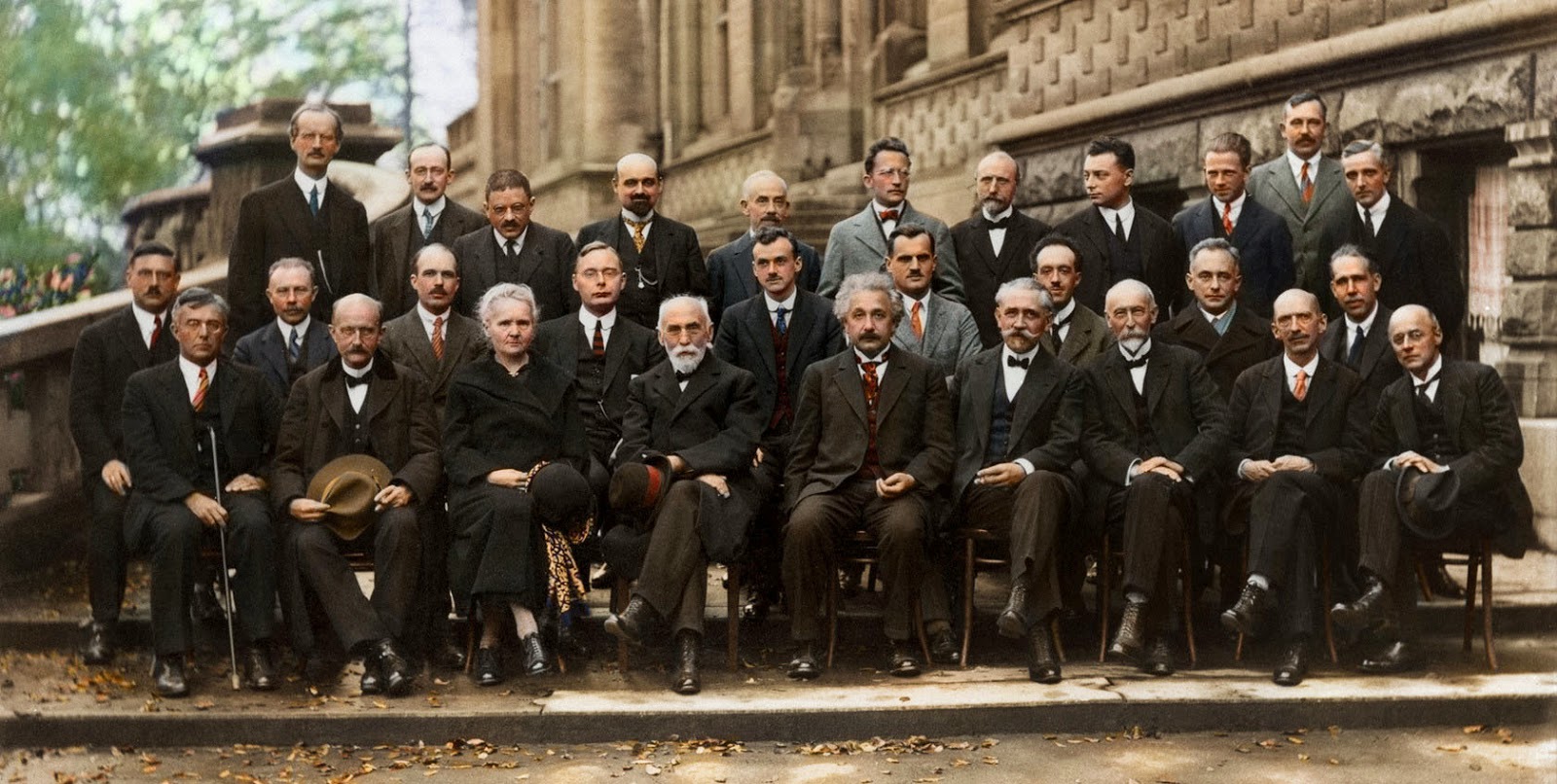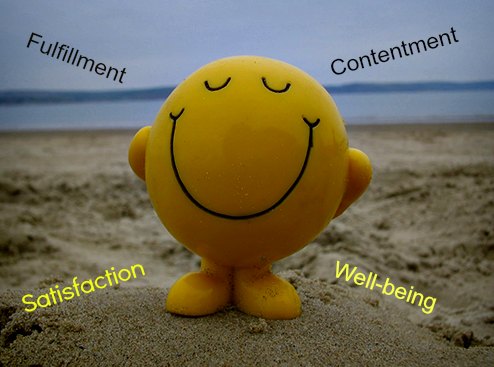by Darpan Sachdeva
I have devoted last few years of my life reading, understanding and analyzing how the famous people from various fields of life have achieved success. I would say its not been a story of linear solutions with one perfect tailored answer or recipe for success for them.
Success by itself and its after affects vary a lot for different people depending upon their circumstances and perception of the success itself. 2 successful people although both have achieved the same distinction of glory and success for themselves can reach the same very result very differently, depending on their economic, geographical, social and cultural factors.
This said done, I would still take the liberty to categorize the basic success ingredients that would lead to an enlightened success in its most generic form.
1.Vision and conquer of fear
How long does it take to completely turn your life around?
Most would say months if not years or decades. There is much ‘hard work’ involved and the labor is long and painful.
Think again.
It is actually possible to change your life in a very short period. Perhaps in a day and certainly in a few weeks.
We are hemmed in by our fears and live constricted lives. When we see this clearly, change is instantaneous. The Indian sage Sri Ramakrishna illustrated this beautifully. “Imagine a cave whose mouth has been covered by a rock slide. It has been pitch black inside for thousands of years. When you open up the cave and bring a light inside, the darkness dissipates instantly.
It all depends on our breaking through of the beliefs and fears we are holding on to in our life that do not allow us to move forward. It is the crystal-clear vision of what we want to achieve and then removing the cluttering that stands in between for us and conquer all the fears involved.
Time taken to remove these ill myths, as I would put them, could be anything in between instant to your whole life depending upon how and when you figure them out.
2.The company we keep.
What one action can you take that will significantly increase the probability that you will succeed in any venture you undertake?
This action will help you if you want to lose weight, become a millionaire, be happy, solve MENSA puzzles, improve your tennis and play the guitar better.
Give up?
The answer is simple. Hang around people who are already where you want to be. Spend significant time with them. If you want to be a better chess player, socialize with the club champion and runner up.
Thousands of years ago, the Buddha knew the value of like-minded company and stressed the importance of Sangha, the tribe of persons on the path with you.
More recently, Napoleon Hill enunciated the importance of the Mastermind Group. When you surround yourself with successful people, you tend to absorb their attitudes and odds increase tremendously that you will succeed more than you would have otherwise.
Belgian chemist Ernest Solvay made a fortune by inventing the ammonia-soda process for manufacturing soda ash and the Solvay Process is still in use. He used a portion of his wealth to organize conferences called the Solvay Congress where the most noted scientists of the day could come together and freely exchange ideas. Those were the days when travel was difficult and expensive and, but for his efforts, many of these great minds may never have met.
The Fifth Solvay Congress held in October 1927 is widely believed to be the greatest ever gathering of scientific titans and included Einstein, Bohr and Heisenberg
Seventeen of the 29 attendees eventually won the Nobel Prize and Marie Curie won it twice.
The idea brought home here is that you have to be a part of the successful people who have already achieved the so sought success and are in a position to share their experience and secret sauce to achieve the success. Being in the company of them will allow you to learn and propagate your energy in the right direction.
3.The drive to accomplish and win big.
We are, each of us, a speck of dust on a clod of earth whirling around in the middle of nowhere. One day we will make the great transition and all that we have so painfully accumulated will be stripped from us in an instant.
We forget this as we get absorbed in the drama we create and strive mightily to achieve ends with little thought as to whether they are worth the toil.
Shakespeare put it beautifully – Imperious Caesar, dead and turn’d to clay, Might stop a hole to keep the wind away.
The days come and go. Summer fades into Fall that morphs into Winter that gives way to Spring and back to Summer. Again and again we see this happening. As Longfellow observed, our hearts, though stout and brave, still like muffled drums are beating funeral marches to the grave.
He was a holy man, and his eyes were so bright with transcendent knowledge that none of the guards dared stop him or lay a hand on him.
He made his way to the durbar room of the sultan’s palace and pounded the floor with his staff. “Who is the owner of this caravansary (inn)?” he demanded. “Bring him here at once.”
Various ministers came and then the vizier, but the holy man impatiently shooed them off. Again he demanded to see the owner.
At length, intrigued by the strangeness of the event, the sultan himself appeared in his royal robes.
“Are you the owner of this caravansary?” the old man queried. “I seek shelter for the night and will leave in the morning.”
“Gladly will my men provide for you this night,” said the sultan amusedly. “But know that you have entered the royal palace. This is no caravansary.”
The sage squinted. He came closer and peered at the sultan’s face. “I recognize you,” he exclaimed. “I was here three decades ago, and you gave me accommodation then.”
“That was my father,” said the sultan. “He is no more. May his soul rest in peace.”
“I came two decades before that also,” remembered the mystic, “And sojourned for the night. Was it then your father who made me welcome?”
“That was my grandfather,” replied the sultan. “My father assumed the throne when his father crossed the great divide.”
The days come and go. Summer fades into Fall that morphs into Winter that gives way to Spring and back to Summer. Again and again we see this happening. As Longfellow observed, our hearts, though stout and brave, still like muffled drums are beating funeral marches to the grave.
“And this place where people tarry for a while and then leave,” thundered the seer. “Do you still say it is not a caravansary?”
How do we reconcile our drive to achieve with the knowledge that we are finite, and death will find us all too soon?
How do we find the peace and serenity of an enlightened sage while we are ensnared in the coils of striving for money and power and fame?
The two can indeed be reconciled .Successful people have mastered how to retain calm, on how to “…face Triumph and Disaster and treat those two imposters the same.
The true success lies in this mastery of the drive and the vision along side the real harsh truths of the life all of us face.
4.Presence and Co-operation:
Presence! The factor that determines how big you will ‘succeed’
In today’s complex society, whether you are an entrepreneur or an executive, your success will depend on the efforts of others. You will be better able to enlist such cooperation if you can develop ‘presence’.
Presence is that indefinable quality that leads others to believe you, trust you, follow you and listen to you with respect. It gains you supporters and vanquishes opponents. It gives you gravitas.
Six hundred years ago an invading English force had bogged down in France. Their much-heralded campaign had captured just one unimportant city and they were on their way back disgruntled and dispirited. They had marched hundreds of miles in just over two weeks, had little food and suffered from dysentery and lack of sleep.
Blocking their way was a rested French army more than four times its size. Doom seemed assured.
And that was when Henry V delivered his famous St. Crispin’s Day speech,immortalized by Shakespeare:
This day is call’d the feast of Crispian.
He that outlives this day, and comes safe home,
Will stand a tip-toe when this day is nam’d,
And rouse him at the name of Crispian.
He that shall live this day, and see old age,
Will yearly on the vigil feast his neighbours,
And say “To-morrow is Saint Crispian.”
Then will he strip his sleeve and show his scars,
And say “These wounds I had on Crispin’s day.”
Old men forget; yet all shall be forgot,
But he’ll remember, with advantages,
What feats he did that day
The aroused Englishmen handed the French a crushing defeat and the Battle of Agincourt is still studied by military historians
Presence gives you the ability to inspire others to do deeds that they never dreamed possible, to bring out the very best in them and soldier on when the sky is overcast.
You do not develop presence by wishing it. It happens organically when you are personally anchored in a worldview that radiates itself in your tone of voice, in your mannerisms and in all manner of subtle clues that you are always dropping.
Presence has a profound payoff in your personal and professional life.
5.The power of creativity and paradigm shift:
Your life is a creation. It is a work of art no less than the paintings on the ceiling of the Sistine Chapel or the giant statue of Gomateshwara at Sravanabelgola. You are the artist. All works of art first come into being in the mind of the craftsman.
You wake up in the morning suffused with an ineffable feeling of joy, a deep sense of well being. You go to work, to a job you love so much that you would pay for the privilege of doing it. You labor intently but are so focused that time flies by unnoticed. At the end of the day you are invigorated, brimming with more energy than when you started. You have a penetrating awareness of the course you are charting, a clear knowledge of your place in the scheme of the universe. Your work feeds this, is congruent with it and brings great contentment and peace.
You face obstacles, big ones and small ones, perhaps more than your fair share of them. You understand very clearly that their purpose is to test your mettle, to bring out the best in you even as the abrasive whetting stone serves to finely hone the knife. So you plow on indomitably, sure of what you want to achieve and yet unconcerned about results.
At times it seems as if you are riding on the crest of a powerful tidal wave, as if the universe itself is helping you, working with you and through you. Locked doors open mysteriously. Incredibly fortuitous coincidences occur. You accomplish prodigious feats, feats you would never have imagined yourself capable of. Yet it would have been perfectly okay if you had not accomplished them. You accept accolades gracefully but are not swayed by them because you march to the beat of your own drummer.
A life such as described above is your birthright. You have to reach out and claim it.
But why most of us are unable to live such a life and how does all this happen in real world for the true success in its literal meaning:
Most persons believe that you have to climb the ladder of success a rung at a time. That upward mobility is slow and progress incremental.
This is untrue. You can leapfrog levels and reach a higher level of achievement
in short order. And you can do this again. And again.
You cannot do this by “working harder.”
You cannot do this by “working smarter.”
You cannot do this by “managing your time better.”
The only way you can pull this off is by radically changing the way in which you view the world. You achieve a quantum leap by dramatically changing your approach to life and the way your react to your circumstances.
You need a paradigm shift.
To illustrate the power of a paradigm shift consider this ancient parable:
The abbot of a once famous Buddhist monastery that had fallen into decline was deeply troubled. Monks were lax in their practice, novices were leaving and lay supporters deserting to other centers.
He traveled far to a sage and recounted his tale of woe, of how much he desired to transform his monastery to the flourishing haven it had been in days of yore. The sage looked him in the eye and said, “The reason your monastery has languished is that the Buddha is living among you in disguise, and you have not honored Him.”
The abbot hurried back, his mind in turmoil. The Selfless One was at his monastery! Who could He be? Brother Hua?…No, he was full of sloth. Brother Po?…No, he was too dull.
But then the Tathagata was in disguise. What better disguise than sloth or dull- wittedness?
He called his monks to him and revealed the sage’s words. They, too, were taken aback and looked at each other with suspicion and awe. Which one of them was the Chosen One? The disguise was perfect.
Not knowing who He was they took to treating everyone with the respect due to a Buddha. Their faces started shining with an inner radiance that attracted novices and then lay supporters.
In no time at all, the monastery far surpassed its previous glory.
When you change the way you think, the universe changes to conform to the new person you have become. This is time when you are heading toward the true success.
6.Persistence with Clarity-The power of mind:
Einstein remarked that insanity is simply doing the same thing over and over again and expecting different results. This is a trap we all fall into. We try to get out of it by ‘trying harder.’
It would be wise to remember that the first thing you should do when you find yourself in a hole is to stop digging.
It was once in a luxury hotel set high on a bluff, There were floor to ceiling glass walls that gave a panoramic view of an incredible landscape. A small skylight was open on the other side and, somehow, a sparrow found its way into a room.
Seeing the broad expanse of daylight, the terrified bird flew toward it, hit the clear glass wall and fell to the ground.
It was merely stunned, however, and soon recovered. Still terrified and bent on escaping it flew into the glass again. And again.
It was apparent to that the hapless bird would soon die. ‘Trying harder’ was not a good solution to its predicament.
Fortunately, there was a better answer.
There were heavy shades at the side and were drawn blocking off the view. The room instantly became dark and gloomy.
And, in the blackness, there was a small glimmer of light above. It was the skylight through which the bird had made its entrance.
The sparrow flew higher and was soon free.
The sparrow’s dilemma is our own. We are blinded by the coruscating brilliance of the world, by the glimmer of the many realms we can conquer, by the prospect of greater fame and fortune and glory.
And we, too, batter our heads against the sting of failure and pick ourselves up and try again and again. Sometimes we ‘succeed’ only to find that we are in another enclosure with fresh glass walls that we can continue to assault.
We are worse off in one respect. There was no one urging the sparrow on in its futile quest. But society urges us to ‘try harder’ and ‘persevere.’ That ‘if at first you don’t succeed, try, try again.’
Persistence may indeed be an admirable virtue but it has to be tempered with clarity. We do not want to clamber up the ladder of success and discover that it has all along been leaning against the wrong wall. We are dazzled by the opportunities we see around us and deafened by the din and clamor of the world
Nearly three thousand years ago the Buddha said: We are what we think. All that we are arises with our thoughts. With our thoughts we make the world. Speak or act with an impure mind And trouble will follow you As the wheel follows the ox that draws the cart.
We are what we think. All that we are arises with our thoughts. With our thoughts we make the world. Speak or act with a pure mind And happiness will follow you As your shadow, unbreakable. How can a troubled mind Understand the way? Your worst enemy cannot harm you As much as your own thoughts, unguarded. But once mastered, No one can help you as much, Not even your father or your mother.
—Dhammapada The Buddha
We interact with the world through our minds. The thrill of romantic love, the exhilaration of achievement, the despondence of tragedy, the terror engendered by events such as losing one’s job – they all exist in our minds. The mind is a finely balanced and highly complex tool and yet none of us routinely receive any training on how to use this remarkable instrument. We muddle through life making endless mistakes learning a little from some and nothing from others.
Consider your personal computer. Its limitations were severe when it first appeared during the eighties. Its operating system was ramshackle and pitiful. Say you wrote a letter to a potential employer showcasing your strengths and wanted to save it as a template for repeated use. You were restricted to eight characters and would have had to label it something like LPEHS1 – for Letter to Potential Employer Highlighting Strengths, version 1. Good luck trying to figure out what this meant two weeks later. It was not till Windows 2005 appeared that you could use long, descriptive file names. A superior operating system improves your experience with word-processing, spreadsheet and presentation programs and a lot more beside.
Your mind also has an operating system. This is a pastiche of beliefs, models, judgments and conjectures that you have created. It is with and through this hodge-podge that your mind functions. You probably don’t recognize this as an operating system but it plays exactly the same role.
Its is this control of your mind and thinking power and placement of right beliefs and practices that would take you on the path to the true success in all its forms.
7.State of happiness
For most of us, our entire lives are a treadmill of effort to acquire ‘more’ – more money, bigger house, more attractive spouse, more power, more fame, more control, more cars and more luxurious cars, more vacation homes, more exclusive and more expensive trinkets. More of anything and everything.
Where seekest thou? That freedom, friends, this world Nor that can give.
In books and temples vain
Thy search. Thine only is the hand that holds
The rope that drags thee on. Then cease lament,
Let go thy hold, Sannyasin bold! Say, Om tat sat, Om!
–Swami Vivekananda
Recognize that there is no problem in seeking more or wanting more or enjoying more. The problem lies in believing that any of this will bring us ‘more’ happiness. The causative link is spurious but, Oh, how firmly we believe in it!!
He was a powerful monarch and presided over a prosperous kingdom. Art and science flourished and there was literature and theater and wholesome entertainment. His ministers were wise and dedicated. His wives were many and beauteous. His offspring were brilliant and dutiful. His army was powerful enough to keep all enemies at bay. He had leisure enough to pursue any field of learning and a mind keen enough to make rapid progress. There was nothing of this world he did not have.
Yet he knew that there was something missing. Serenity eluded him and his sleep was troubled. He eagerly sought out wise men who could possibly cure his malaise. One day he learnt of a sage in a distant town, a man of the greatest wisdom and accomplishment. He hurried thither to meet him.
The mystic was emaciated and unwashed. His locks were unkempt and he was barely clothed. But his eyes shone with an unnatural light and the king somehow knew that he was in the presence of greatness.
“Tell me, Sir,” asked the king anxiously, “Are you truly happy?”
“Of course I am, my son.” He replied. “How could I not be?”
And the king knew it was true and he earnestly asked for instruction.
The sage agreed, but the conditions he set were severe. For ten years he was to have the rule of the kingdom and the palace. If his slightest action was questioned, he would leave immediately. The emperor agreed and the wise man took up his abode in the palace.
He immediately started living a life of unbridled indulgence and luxury. Barbers and masseuses tended to him, the finest tailors clothed him, jugglers and clowns entertained him and he had sculptors create massive statues of himself all over the kingdom.
The emperor was taken aback by this transformation, but he kept his word and instructed his staff to obey the sage. They grumbled loudly and felt that the king had taken leave of his senses, but grudgingly they obeyed.
Every evening, for one hour, the king received instruction and the wise man seemed different at these sessions. His words carried the ring of truth and the ruler learned much about statecraft and about philosophy.
At other times he despaired and regretted his impulsive invitation. The intruder discovered tobacco and puffed like a chimney. He was introduced to intoxicants and imbibed freely. He made boundless use of the ruler’s harem and the king shuddered and turned his head.
The breaking point came some months later when the king was with his favorite concubine and the sage asked him to begone so he could indulge himself. Red-faced with wrath the sovereign berated him and asked him to look at what he had become, how low he had fallen. “There is no difference between you and me,” he asserted. “How could I have possibly thought that you had anything to teach me.”
“I was wondering when you would erupt,” said the sage amusedly. “I will leave now because you broke your word. You are wrong. There is an enormous difference between us and until you understand this difference, you will suffer as you always have.”
“What difference?” the king shouted. “You indulge yourself just as I do and seek enjoyment more than I ever did.”
“Your word was weak,” said the philosopher calmly, “So I will leave. But you are a good man and your intentions were honorable, so I will teach you this difference as a parting gift. But I cannot do it here at the palace. You must come with me alone, for two weeks.”
So the two set out and traveled far and the king kept pressing for answers and the sage smiled enigmatically. At length they reached the border and the mystic kept going. The king stopped even though the other pressed him to follow.
“It is not safe,” protested the emperor. “I have to hurry back. There are affairs of state to tend to and much to do. I regret that I indulged you again. Tell me the difference and begone.”
“That is the difference, my son,” said the sage as he discarded his raiment. “I was in the lap of luxury and I leave with no regrets, not a moment’s sorrow. The time for such enjoyment is past. Like all things it comes and it goes and I accept this fully with total equanimity.
“You, on the other hand,” he continued, “Are so stuck with being an emperor that you are prepared to forgo your own quest. This is the tragedy. What you seek is within your grasp, but you can only reach it if you let go of what you are clasping so tightly to your bosom. I understand this. You do not. That is the difference between us and it is a mighty chasm.”
“Return to your palace. Rule wisely, my son, and I pray that some day you, too, will discover this truth for yourself.”
The scales fell from the king’s eyes and he remembered their evening sessions and how much he learnt. He earnestly begged for forgiveness and entreated the other to return.
“No, my son,” said the sage firmly. “If I return now you will forever doubt whether I was a master gamesman or a true master. There is no more I have to teach you. Go back to your kingdom.”
He turned and strode off. He did not look back.
The king returned to his palace and resumed his rule. He pondered on the sage’s words and reflected on his teachings. And suddenly, one day, he understood.
To our present day context, all truly successful people are not attached to the true values of modern material world. They do fully enjoy it as they possess it but do understand the true happiness of success is not only in attachment to the material world.
8.Work-Power of mindful action
“Labore ut orare–To work is to pray.”
All the success in the world depends upon the true work we do for it.This fact all successful people understand and cherish.
A human being is part of the whole, called by us the Universe; a part limited by time and space. He experiences himself, his thoughts and feelings as something separated from the rest, a kind of optical illusion of consciousness. This delusion is a kind of prison for us, restricting us to our personal desires and to affection for a few persons nearest us. Our task is to free ourselves from this prison by widening our circle of compassion to embrace all living beings and all of nature.
-Albert Einstein
“Do little things in an extraordinary way; be the best one in your line. You must not let your life run in the ordinary way; do something that nobody else has done, something that will dazzle the world. Show that God’s creative principle works in you. Never mind the past. Though your errors be as deep as the ocean, the soul itself cannot be swallowed up by them. Have the unflinching determination to move on your path unhampered by limiting thoughts of past errors.”
-Paramahansa Yogananda
“God can dream a bigger dream for you than you can dream for yourself, and your role on earth is to attach yourself to that divine force and let yourself be released to it.” “I will tell you that there have been no failures in my life. I don’t want to sound like some metaphysical queen, but there have been no failures. There have been some tremendous lessons.”
-Oprah Winfrey
“Many people are surprised to learn that in 27 years at UCLA, I never once talked about winning. Instead I would tell my players before the games, ‘When its over, I want your head up. And there’s only one way for your head to be up, and that’s for you to know, not me, that you gave the best effort of which you are capable. If you do that, then the score really doesn’t matter, although I have a feeling that if you do that, the score will be to your liking.’ I honestly, deeply believe that in not stressing winning as such, we won more than we would have if we had stressed outscoring opponents.”
-John Wooden
What is work? What is beyond work? Even some seers see this not aright. I will teach thee the truth of pure work, and this truth will make thee free…All actions take place in time by the interweaving of the forces of Nature; but the person lost in selfish delusion thinks that he himself is the actor.
-Bhagavad Gita
 Darpan Sachdeva is the CEO and Founder of Nobel thoughts.com. With a long time passion for Entrepreneurship, Self development & Success, Darpan started his website with the intention of educating and inspiring like-minded people all over the world to always strive for success no matter what their circumstances.To keep going and never get disheartened and learn from every adversity.
Darpan Sachdeva is the CEO and Founder of Nobel thoughts.com. With a long time passion for Entrepreneurship, Self development & Success, Darpan started his website with the intention of educating and inspiring like-minded people all over the world to always strive for success no matter what their circumstances.To keep going and never get disheartened and learn from every adversity.












